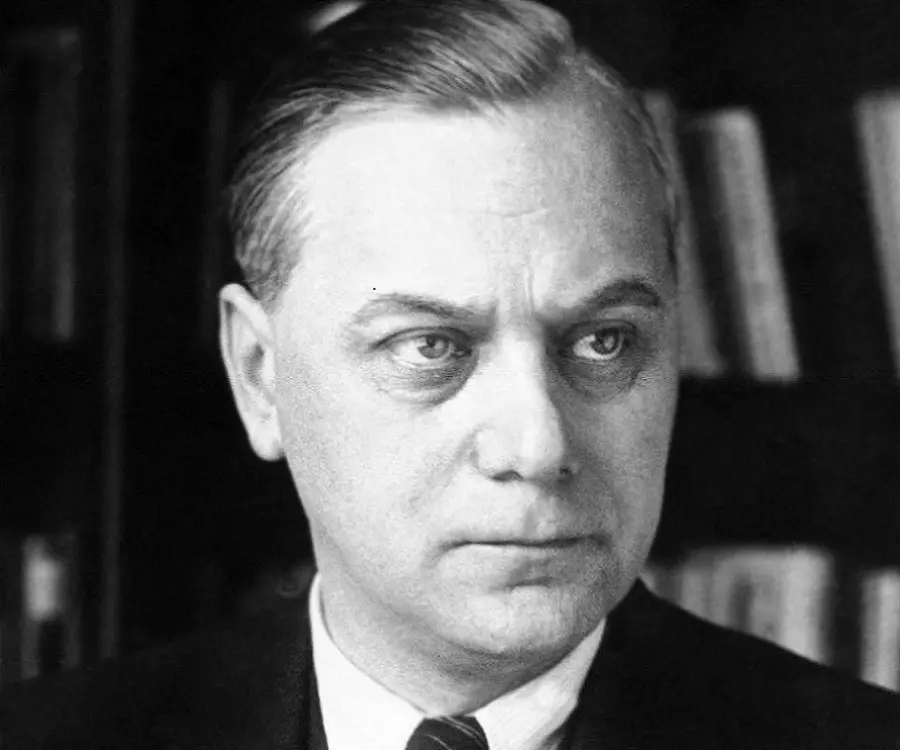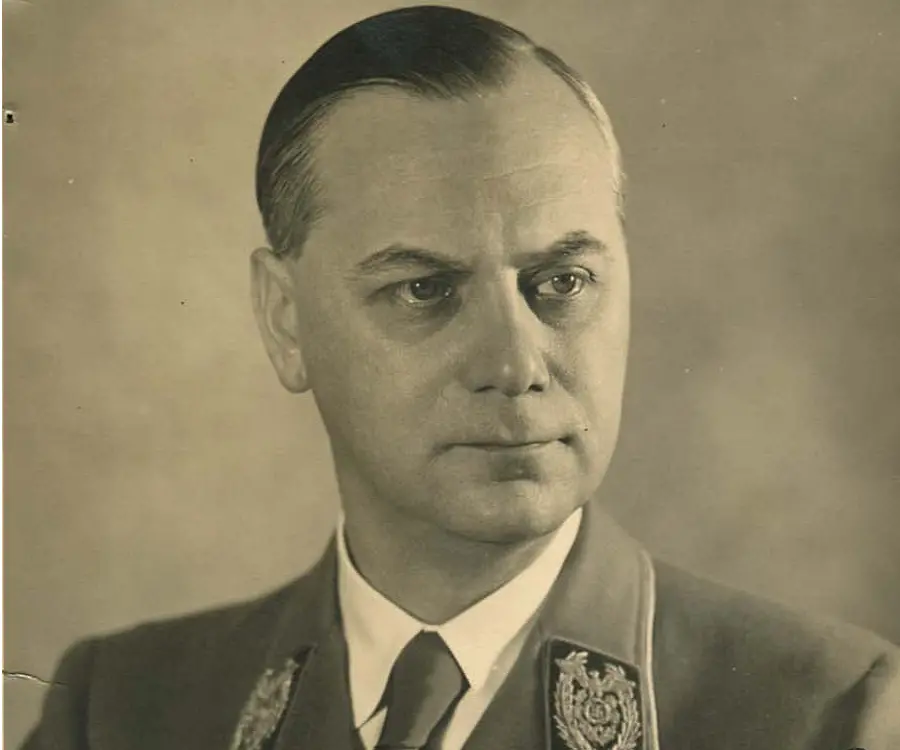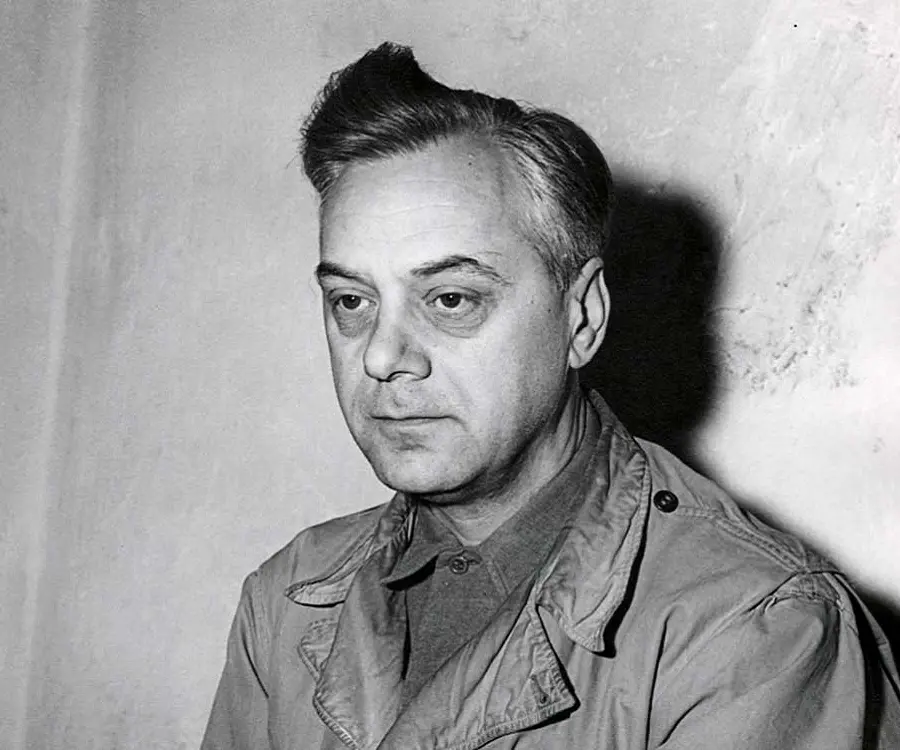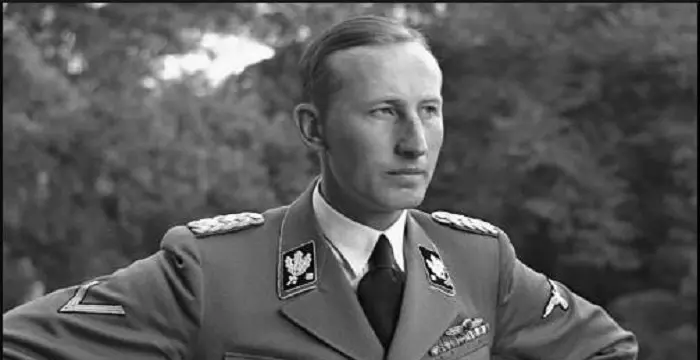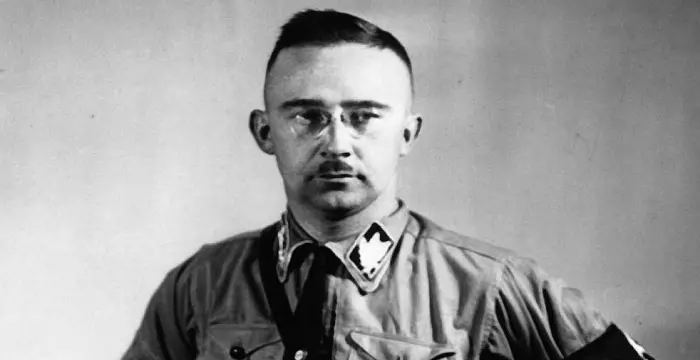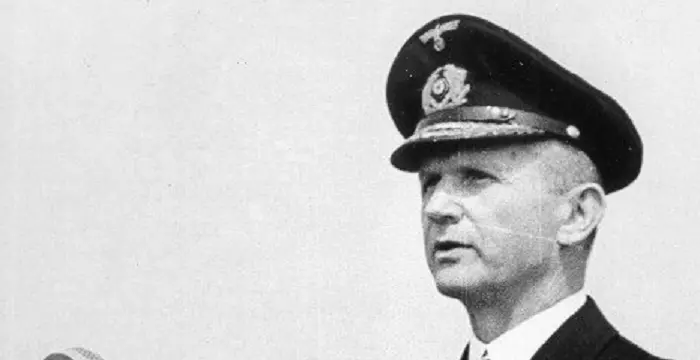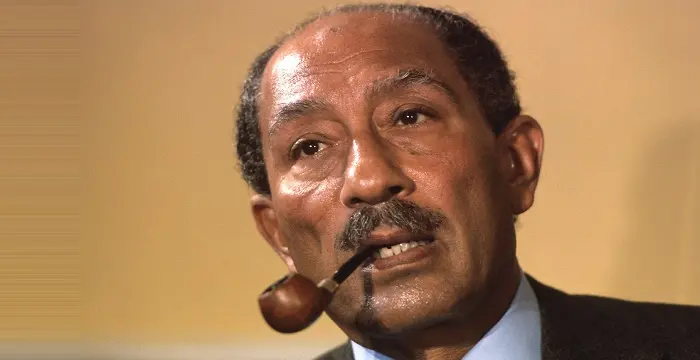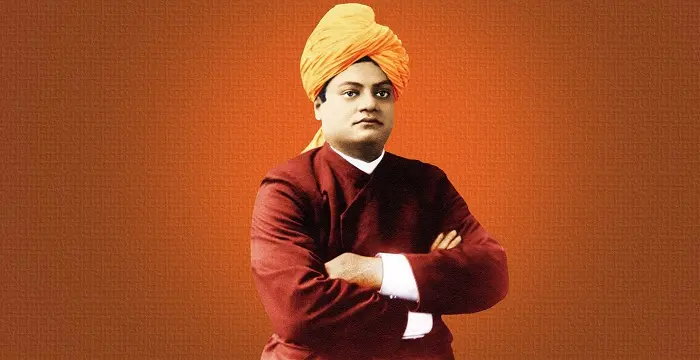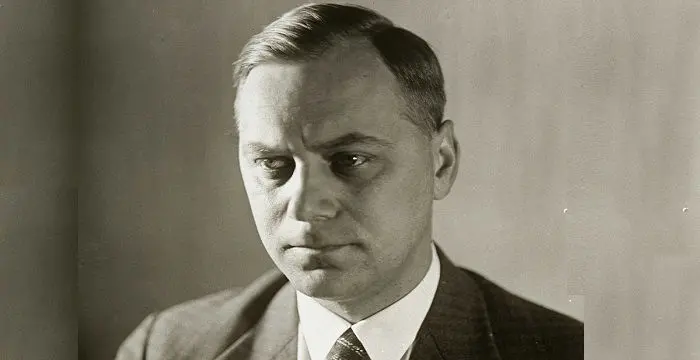
Alfred Rosenberg - Author, Family and Childhood
Alfred Rosenberg's Personal Details
Alfred Rosenberg was one of the leading ideologists of the Nazi Party who played a decisive role in shaping Nazi philosophy
| Information | Detail |
|---|---|
| Birthday | January 12, 1893 |
| Died on | October 16, 1946 |
| Nationality | German |
| Famous | Nazis, War Criminals, Leaders, Author, Nazi Party Ideologue |
| Ideologies | Nazis |
| Spouses | Hedwig Kramer, Hilda Leesmann |
| Known as | Alfred Ernst Rosenberg |
| Childrens | Irene |
| Universities |
|
| Founder / Co-Founder |
|
| Cause of death |
|
| Birth Place | Tallinn |
| Gender | Male |
| Father | Waldemar Wilhelm Rosenberg |
| Mother | Elfriede |
| Sun Sign | Capricorn |
| Born in | Tallinn |
| Famous as | Nazi Party Ideologue, Author |
| Died at Age | 53 |
// Famous Author
Joyce Meyer
Joyce Meyer is a Christian author and speaker. This biography provides detailed information about her childhood, life, achievements, works & timeline
Suze Orman
Suze Orman is an American television host, financial advisor, author and motivational speaker, famous for her ‘The Suze Orman Show’ on CNBC. This biography profiles her childhood, life, career, works, achievements and timeline.
Robert Graysmith
Robert Graysmith is an author best identified for his works on the ‘Zodiac Killer case’. Check out this biography to know about his childhood, family life, achievements and fun facts about him.
Alfred Rosenberg's photo
Who is Alfred Rosenberg?
Born in Russia, Alfred Rosenberg was one of the leading ideologists of the Nazi Party who played a decisive role in shaping the Nazi philosophy. He had a dominating and arrogant personality with a fierce hatred for the Jewish community. Despite being well educated in architecture and engineering with a doctorate degree, he became a racist and joined Hitler’s party when he immigrated to Germany after the 1917 Russian Revolution. He was one of the main promoters of key Nazi ideological beliefs such as, the racial theory, persecution of the Jews, abrogation of the Treaty of Versailles, and other such creeds. He also played an important role in the development of Positive Christianity, a movement within Nazi Germany which blended ideas of racial purity and Nazi ideology with elements of Christianity. He influenced Nazi thinking on a wide range of subjects from music to religion but ultimately was captured by Allied troops at the end of the Second World War. He was convicted of planning and encouraging dreadful crimes against humanity at the Nuremberg War Crimes Trial. Like many of his followers, he was convicted as a war criminal and was hanged.
Childhood & Early Life
He was born on January 12, 1893 in Reval, Governorate of Estonia, Russian Empire, to Waldemar Wilhelm Rosenberg, a shoemaker and wealthy merchant, and his wife, Elfriede.
His father was known to be half-Estonian and half-Latvian in origin while his mother was German with some French background, according to the newest research.
He excelled in his early education and graduated from the Petri-Realschule in Reval.
After schooling, he studied architecture at the Riga Polytechnical Institute where he joined a pro-German student group. He also studied engineering at Moscow's Highest Technical School and obtained his doctorate in 1917.
Career
During the Russian Revolution of 1917, he and his family supported the counter-revolutionaries. But after they lost, he along with his family immigrated to Germany in 1918. Max Scheubner-Richter, the mentor behind his German ideology, also immigrated along with him to Munich.
After World War I, the anti-Semitic and anti-communist German Workers Party, better known as the Nazi Party, marked Munich as its center for revolutionizing the country. In 1919, Rosenberg became one of the earliest members of the party.
He also became a member of Thule Society and Aufbau Vereinigung, a Munich based counter-revolutionary conspiratorial group, whose members were involved in terrorist activities to overthrow the governments of Germany and the Soviet Union, replacing them with authoritarian regimes of the far right.
In 1923, he became one of the first editors of the ‘Völkischer Beobachter’ when it became the Nazi party newspaper. He published his philosophies and ideas in the newspaper and it soon became infamous for its poisonous anti-Semitic articles.
In 1923, after Hitler was imprisoned following the failure of ‘Beer Hall Putsch’—a failed attempt to seize power in Munich—he appointed Rosenberg as the leader of the National Socialist movement, a position he held until Hitler’s release.
In 1929, Rosenberg founded the ‘Militant League for German Culture’ to make a significant imprint on cultural life in Germany based on the aims and objectives of the inner circles of the Nazi Party.
In 1930, he was appointed as a Reichstag Deputy. Subsequently, he published his book on racial theory, ‘The Myth of the Twentieth Century’, which deals with key issues in the national socialist ideology such as attacking Jewish influence in German culture.
In November 1932, he participated in the Volta Conference held in Rome. The following year, he was named leader of the Nazi Party's foreign political office by Hitler.
In January 1934, Hitler appointed him as the spiritual and philosophical teacher of the Party and all related organizations. Rosenberg was also appointed the Nazi Party’s chief racial theorist and oversaw the construction of a human racial "ladder" which regarded Nordics as the "master race", superior to all others.
In 1940, Rosenberg was elected as the head of the Hohe Schule, a kind of academy for party officials, the Centre of National Socialist Ideological and Educational Research.
When the German forces invaded the USSR, he was appointed the head of the Reich Ministry for the Occupied Eastern Territories. During the war, he advocated a policy designed to encourage anti-Communist opinion among the population of the occupied territories.
After the war, Rosenberg was captured by Allied troops and was presented for trials at Nuremberg for his heinous acts of crime.
He was found guilty of committing crimes against peace and crimes against humanity. He was also accused of planning, initiating and waging wars of aggression and was charged of being a war criminal.
He was sentenced to death, at the Nuremberg trials, for his monstrous act of planning to murder thousands of innocent people.
Personal Life & Legacy
In 1915, he married Hilda Leesmann, an ethnic Estonian. But, they got divorced in 1923.
In 1925, he married Hedwig Kramer. They were blessed with two children; a son, who died in infancy, and a daughter, Irene, who was born in 1930. Their marriage lasted until his execution.
He considered those Germans impure who did not marry Germans as they have violated the purity of German blood ancestry by diluting it with the blood of non-German people.
He was accused of being a war criminal and was executed at Nuremberg on the morning of October 16, 1946.
// Famous Nazis
Reinhard Heydrich
Reinhard Heydrich was a high-ranking German Nazi official during the World War II. Check out this biography to know about his childhood, family life, achievements and other facts about his life.
Heinrich Himmler
Heinrich Himmler was a German Nazi military commander and a close associate of Adolf Hitler. This biography profiles his childhood, family, personal life, role in concentration camps and his death.
Karl Dönitz
Karl Dönitz was a German admiral and played an important role in World War II. This biography profiles his childhood, early life, family, naval career, capture, imprisonment, and other facts.
Alfred Rosenberg biography timelines
- // 12th Jan 1893He was born on January 12, 1893 in Reval, Governorate of Estonia, Russian Empire, to Waldemar Wilhelm Rosenberg, a shoemaker and wealthy merchant, and his wife, Elfriede.
- // 1915In 1915, he married Hilda Leesmann, an ethnic Estonian. But, they got divorced in 1923.
- // 1917During the Russian Revolution of 1917, he and his family supported the counter-revolutionaries. But after they lost, he along with his family immigrated to Germany in 1918. Max Scheubner-Richter, the mentor behind his German ideology, also immigrated along with him to Munich.
- // 1919After World War I, the anti-Semitic and anti-communist German Workers Party, better known as the Nazi Party, marked Munich as its center for revolutionizing the country. In 1919, Rosenberg became one of the earliest members of the party.
- // 1923In 1923, he became one of the first editors of the ‘Völkischer Beobachter’ when it became the Nazi party newspaper. He published his philosophies and ideas in the newspaper and it soon became infamous for its poisonous anti-Semitic articles.
- // 1925In 1925, he married Hedwig Kramer. They were blessed with two children; a son, who died in infancy, and a daughter, Irene, who was born in 1930. Their marriage lasted until his execution.
- // 1929In 1929, Rosenberg founded the ‘Militant League for German Culture’ to make a significant imprint on cultural life in Germany based on the aims and objectives of the inner circles of the Nazi Party.
- // 1930In 1930, he was appointed as a Reichstag Deputy. Subsequently, he published his book on racial theory, ‘The Myth of the Twentieth Century’, which deals with key issues in the national socialist ideology such as attacking Jewish influence in German culture.
- // 1932In November 1932, he participated in the Volta Conference held in Rome. The following year, he was named leader of the Nazi Party's foreign political office by Hitler.
- // 1934In January 1934, Hitler appointed him as the spiritual and philosophical teacher of the Party and all related organizations. Rosenberg was also appointed the Nazi Party’s chief racial theorist and oversaw the construction of a human racial "ladder" which regarded Nordics as the "master race", superior to all others.
- // 1940In 1940, Rosenberg was elected as the head of the Hohe Schule, a kind of academy for party officials, the Centre of National Socialist Ideological and Educational Research.
- // 16th Oct 1946He was accused of being a war criminal and was executed at Nuremberg on the morning of October 16, 1946.
// Famous Leaders
Edi Rama
Edi Rama is the current Prime Minister of Albania. Check out this biography to know about his childhood, life, achievements, works & timeline.
Tecumseh
Tecumseh was a Native American leader of the Shawnee clan. This biography profiles his childhood, life and timeline.
Khalifa bin Zayed Al Nahyan
Sheikh Khalifa bin Zayed Al Nahyan is the current President of the United Arab Emirates (UAE). Check out this biography to know about his birthday, childhood, family life, achievements and fun facts about him.
Anwar Sadat
Anwar Sadat was the third President of Egypt and has been awarded the Nobel Prize for his peace initiatives. To know more about his childhood, career, profile and timeline read on the following biography.
Leo Varadkar
Cam Leo Varadkar is the current Taoiseach—the Prime Minister—of the Republic of Ireland. Check out this biography to know about his childhood, family life, achievements and other facts about his life.
Swami Vivekananda
Swami Vivekananda was the chief disciple of Sri Ramakrishna, and was responsible for awakening India spiritually. Check this biography to know in detail about his life, profile and timeline.
Alfred Rosenberg's FAQ
What is Alfred Rosenberg birthday?
Alfred Rosenberg was born at 1893-01-12
When was Alfred Rosenberg died?
Alfred Rosenberg was died at 1946-10-16
Where was Alfred Rosenberg died?
Alfred Rosenberg was died in Nuremberg
Which age was Alfred Rosenberg died?
Alfred Rosenberg was died at age 53
Where is Alfred Rosenberg's birth place?
Alfred Rosenberg was born in Tallinn
What is Alfred Rosenberg nationalities?
Alfred Rosenberg's nationalities is German
What is Alfred Rosenberg ideologies?
Alfred Rosenberg's ideologies is Nazis
Who is Alfred Rosenberg spouses?
Alfred Rosenberg's spouses is Hedwig Kramer, Hilda Leesmann
Who is Alfred Rosenberg childrens?
Alfred Rosenberg's childrens is Irene
What was Alfred Rosenberg universities?
Alfred Rosenberg studied at Riga Polytechnical Institute, Moscow Highest Technical School
Which company or organization was founded by Alfred Rosenberg?
Alfred Rosenberg was the founder/co-founder of Militant League for German Culture
What is Alfred Rosenberg's cause of dead?
Alfred Rosenberg dead because of Execution
Who is Alfred Rosenberg's father?
Alfred Rosenberg's father is Waldemar Wilhelm Rosenberg
Who is Alfred Rosenberg's mother?
Alfred Rosenberg's mother is Elfriede
What is Alfred Rosenberg's sun sign?
Alfred Rosenberg is Capricorn
How famous is Alfred Rosenberg?
Alfred Rosenberg is famouse as Nazi Party Ideologue, Author



